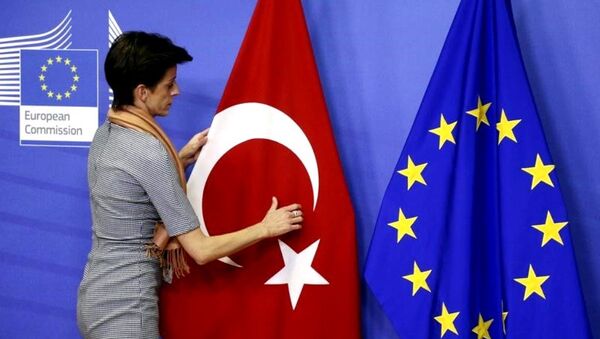Relations between Ankara and Brussels significantly have deteriorated over the recent months. This is, in part, due to the the European Union's concern over the outcome of Turkey's referendum, which granted the sitting Turkish president more powers, as well as with Ankara's suggestion on reintroducing the death penalty. In May, EU Commission President Jean-Claude Juncker said that if Turkey reintroduced capital punishment, it would mean the end of the country’s talks on the accession.
“As the proposed constitutional reform package is not in line with EU membership criteria, the report calls for the formal suspension of the accession talks if the constitutional amendments are implemented as is. We expect the government to take the Venice Commission recommendations seriously, as well as the fact that half of the Turkish population voted against it in the referendum,” EU Parliament’s Rapporteur Kati Piri said, as quoted in a statement by the parliamentary Foreign Affairs Committee.
Turkey signed an association agreement with the then-European Community in 1963, and submitted a membership application in 1987. Talks about Ankara's membership of the European Union began in 2005, but the negotiations have been repeatedly suspended over the years due to various obstacles.
Earlier in the month, Turkish Prime Minister Binali Yildirim said that Ankara is willing to pursue talks with the European Union on receiving full EU membership and renew the Customs Union agreement.




